Nominated innovations
1000 innovative clean energy solutions and > 150 framework enablers with the potential to deliver more than twelve gigatonnes of avoided emissions by 2030
These assessments are based on a basic avoided emission assessment. The overall concept of avoided emissions is that a solution (product or service) enables the same function to be performed with significantly less GHG emissions. The method of measuring avoided emissions, is to compare a baseline scenario without the enabling solution, with a scenario using the enabling solution; whereby the baseline represents the ‘business as usual’ (BAU) scenario.
These assessments are based on the framework document: The Avoided Emissions Framework (AEF) from September 2020
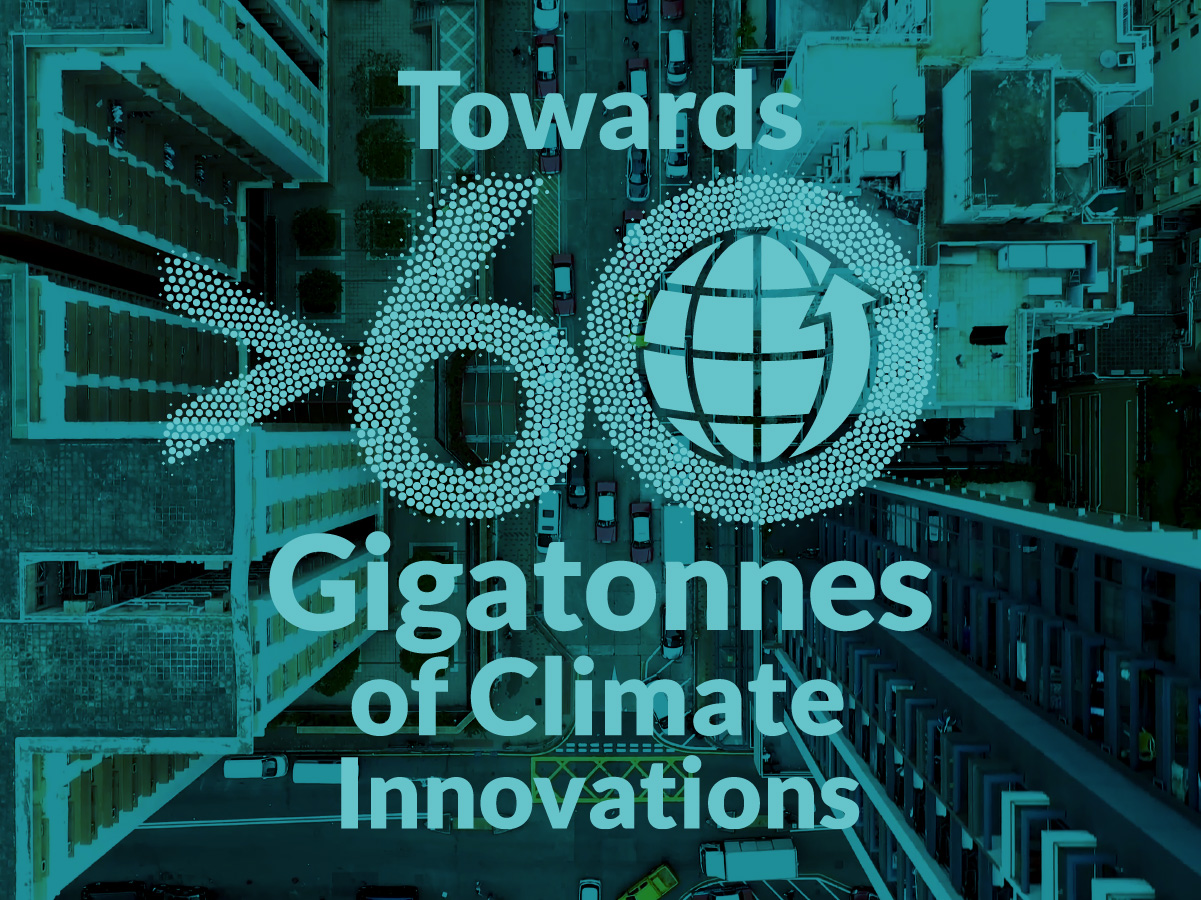
GreenBytes
GreenBytes wrote: Our solution aims to tackle a fundamental part of the food waste problem in restaurants preemptively. The majority of food waste come from restaurants. This is because ordering the right amount of food is difficult. The data to make good decisions is available, but it is confusing, and it is easy to get lost in the numbers. Greenbytes takes the data analysis out of the hands of restaurants. We collect sales data from restaurants and use artificial intelligence to determine optimal amount of food that needs to be ordered. The first step to this is breaking down the ingredients of a restaurant’s menu and quantifying how much goes into each dish... Source: EIT Climate KIC's Climathon
Iceland

GreenBytes
GreenBytes
GreenBytes wrote: Our solution aims to tackle a fundamental part of the food waste problem in restaurants preemptively. The majority of food waste come from restaurants. This is because ordering the right amount of food is difficult. The data to make good decisions is available, but it is confusing, and it is easy to get lost in the numbers. Greenbytes takes the data analysis out of the hands of restaurants. We collect sales data from restaurants and use artificial intelligence to determine optimal amount of food that needs to be ordered. The first step to this is breaking down the ingredients of a restaurant’s menu and quantifying how much goes into each dish... Source: EIT Climate KIC's Climathon
Currently unavailable

Pick it easy
Pick it easy wrote: Our solution is a service where we collaborate with supermarkets to take the order of the customers online. The supermarket prepares the order and we ship it directly into lockers that people can open with a code. These lockers are strategically located to "collecting points" that are close to where people live. To resume, we want to decentralize grocery shoppping by reducing the distance between the people and their groceries. The customer can choose at what day he wants to pick up his groceries and have all the day to pick it up. The delivery from the supermarket to the lockers would only be once a day, and all the customers cover a really small distance to go to these lockers... Source: EIT Climate KIC's Climathon
Iceland

Pick it easy
Pick it easy
Pick it easy wrote: Our solution is a service where we collaborate with supermarkets to take the order of the customers online. The supermarket prepares the order and we ship it directly into lockers that people can open with a code. These lockers are strategically located to "collecting points" that are close to where people live. To resume, we want to decentralize grocery shoppping by reducing the distance between the people and their groceries. The customer can choose at what day he wants to pick up his groceries and have all the day to pick it up. The delivery from the supermarket to the lockers would only be once a day, and all the customers cover a really small distance to go to these lockers... Source: EIT Climate KIC's Climathon
Currently unavailable

The Bike bus
The Bike bus team wrote: The bikebus is a bike-driven vehicle with electric assistance, driven by an adult who controls the direction and brakes. The children pedal to go from home to school or extra activities, and back home. This service will work with the participation of the neighbourhood parents' community, who will take turns in driving the bike bus. They will organise themselves through an app where they can register, communicate and visualize the route they have to take and the children they have to pick up. The same type of idea has been introduced in small towns in france since 4 years ago and the results are very positive. We can compare these small towns to theneighborhoodsin reykjavik... Source: EIT Climate KIC's Climathon
Iceland

The Bike bus team
The Bike bus
The Bike bus team wrote: The bikebus is a bike-driven vehicle with electric assistance, driven by an adult who controls the direction and brakes. The children pedal to go from home to school or extra activities, and back home. This service will work with the participation of the neighbourhood parents' community, who will take turns in driving the bike bus. They will organise themselves through an app where they can register, communicate and visualize the route they have to take and the children they have to pick up. The same type of idea has been introduced in small towns in france since 4 years ago and the results are very positive. We can compare these small towns to theneighborhoodsin reykjavik... Source: EIT Climate KIC's Climathon
Currently unavailable

CycleFest
CycleFest wrote: Cyclefest will be a bi-annual event that aims to kick-start a movement that changes the current car culture of reykjavik city. Cyclefest aims to partner with reykjavik city, existing cycle clubs, institutions, and other businesses to invest in the success of the culture change by providing an event where the people of reykjavik can come to learn about bicycle maintenance, bike safety, winter biking, construction plans to improve bike paths, and much more, all while expanding exposure of the importance of biking and boosting sales for small businesses that support bicycling in reykjavik. The momentum has already started with the car-free day that happened last month and we need to act now to keep it going... Source: EIT Climate KIC's Climathon
Iceland

CycleFest
CycleFest
CycleFest wrote: Cyclefest will be a bi-annual event that aims to kick-start a movement that changes the current car culture of reykjavik city. Cyclefest aims to partner with reykjavik city, existing cycle clubs, institutions, and other businesses to invest in the success of the culture change by providing an event where the people of reykjavik can come to learn about bicycle maintenance, bike safety, winter biking, construction plans to improve bike paths, and much more, all while expanding exposure of the importance of biking and boosting sales for small businesses that support bicycling in reykjavik. The momentum has already started with the car-free day that happened last month and we need to act now to keep it going... Source: EIT Climate KIC's Climathon
Currently unavailable

Solid-state refrigerator
India's National Physical Laboratory has developed a portable, solid state cooling technology that does not require the compressor or refrigerant found in conventional refrigerators. It can therefore be operated at a low-power supply of only 75 Watts DC, e.g. directly from solar photovoltaic cells and batteries. The purpose of the innovation is two-fold: first, as a low-cost comfort and food storage solution to rural populations, and second, to compliment India’s immunization program for rural populations of children by storing vaccines at low temperatures. With a long lifespan and needing little maintenance, the solid state cooler maintains 5 °C at an ambient temperature of 40 °C but can cool to -2 °C if required.
India
≈1

National Physical Laboratory New Delhi
Solid-state refrigerator
India's National Physical Laboratory has developed a portable, solid state cooling technology that does not require the compressor or refrigerant found in conventional refrigerators. It can therefore be operated at a low-power supply of only 75 Watts DC, e.g. directly from solar photovoltaic cells and batteries. The purpose of the innovation is two-fold: first, as a low-cost comfort and food storage solution to rural populations, and second, to compliment India’s immunization program for rural populations of children by storing vaccines at low temperatures. With a long lifespan and needing little maintenance, the solid state cooler maintains 5 °C at an ambient temperature of 40 °C but can cool to -2 °C if required.
≈1Mt CO2e/year
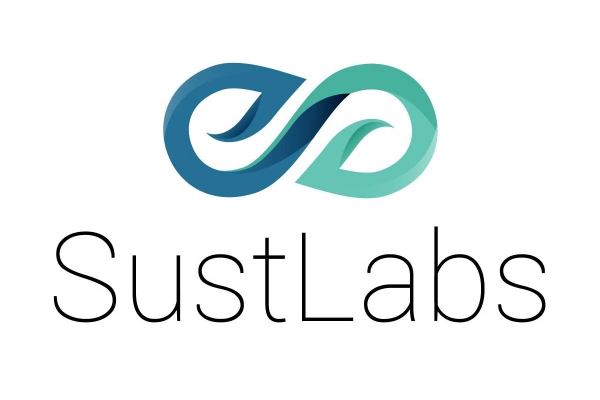
Smart electricity meter data analysis
SustLabs uses automated metering and big-data analytics to ‘decode’ real-time electricity consumption data at residential level up to heavy appliance level by analysing smart meter data. This unlocks a wealth of information that electricity supply carries, generating insights for utilities, appliance manufacturers, market research companies, etc., which creates data driven revenue opportunities. SustLabs predicts this will transform compulsive electricity consumers to informed users.
India
≈10

SustLabs
Smart electricity meter data analysis
SustLabs uses automated metering and big-data analytics to ‘decode’ real-time electricity consumption data at residential level up to heavy appliance level by analysing smart meter data. This unlocks a wealth of information that electricity supply carries, generating insights for utilities, appliance manufacturers, market research companies, etc., which creates data driven revenue opportunities. SustLabs predicts this will transform compulsive electricity consumers to informed users.
≈10Mt CO2e/year
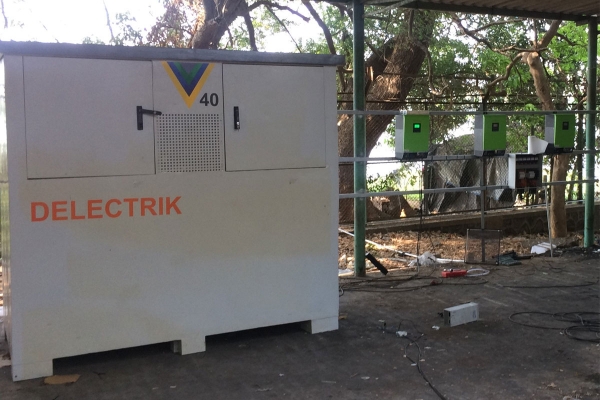
Redox flow battery for energy storage
Delectrik Systems has developed energy storage products based on vanadium redox flow battery technology. Unlike solid-state batteries, such as lead/lithium, a flow battery has a simple one-electron reaction in the aqueous phase, which gives it a very long cycle and shelf life with the potential to match the lifetime of renewables (25 years). The cost of the product is low enough that Delectrik claims it is competitive on upfront capex even at low manufacturing volumes compared to other solid-state batteries. The lifecycle cost could also be significantly lower than other competing technologies.
India
≈10

Delectrik Systems Private Limited
Redox flow battery for energy storage
Delectrik Systems has developed energy storage products based on vanadium redox flow battery technology. Unlike solid-state batteries, such as lead/lithium, a flow battery has a simple one-electron reaction in the aqueous phase, which gives it a very long cycle and shelf life with the potential to match the lifetime of renewables (25 years). The cost of the product is low enough that Delectrik claims it is competitive on upfront capex even at low manufacturing volumes compared to other solid-state batteries. The lifecycle cost could also be significantly lower than other competing technologies.
≈10Mt CO2e/year
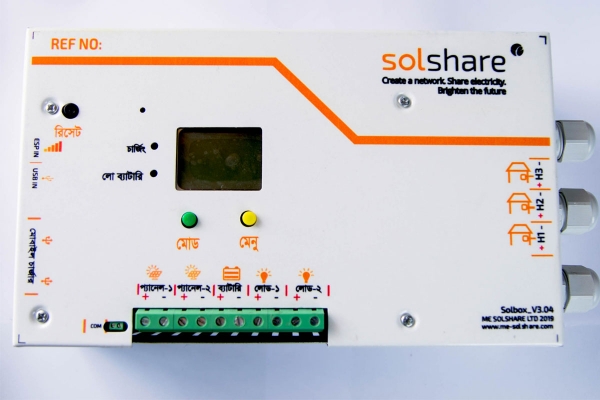
Peer-to-peer solar electricity trading platform
SOLshare claims to have developed the world’s first peer-to-peer solar electricity trading platform that leverages existing solar home systems (SHS) in an off-grid context to create a bottom-up smart grid. SOLshare’s SOLbox is a DC bi-directional power meter, solar charge controller and end-user device that functions as an individual node of the electricity trading network. SOLbox allows the trading network to grow dynamically from the ‘bottom-up’ as more users connect over time. The innovation integrates mobile money payment, data analytics and grid management services. As the network related to the innovation grows it can also connect off-grid locations internationally
India
≈10

SOLShare
Peer-to-peer solar electricity trading platform
SOLshare claims to have developed the world’s first peer-to-peer solar electricity trading platform that leverages existing solar home systems (SHS) in an off-grid context to create a bottom-up smart grid. SOLshare’s SOLbox is a DC bi-directional power meter, solar charge controller and end-user device that functions as an individual node of the electricity trading network. SOLbox allows the trading network to grow dynamically from the ‘bottom-up’ as more users connect over time. The innovation integrates mobile money payment, data analytics and grid management services. As the network related to the innovation grows it can also connect off-grid locations internationally
≈10Mt CO2e/year
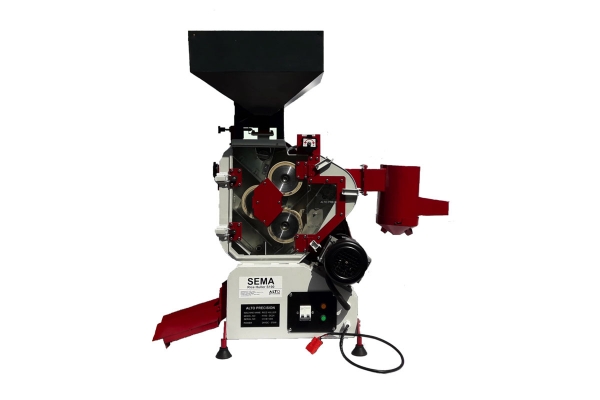
Solar powered small-scale agricultural machines
ALTO precision’s aim is to develop a range of solar-powered small-scale decentralised machinery for remote small holding agri-processing needs in India. Their current developments include a range of small-scale rice processing machines. The solar rice huller is a 360 W machine that can produce 100 kg/hour with a hulling efficiency of 98% in the first pass, which ALTO precision claims is the most efficient small-scale rice processing machine in the world, almost 50% more efficient than any other machine, at a low price. The machines are solar powered, high capacity and very efficient, giving farmers access to a sustainable energy source and providing food security and the opportunity to create an additional income.
India
≈1

ALTO Precision
Solar powered small-scale agricultural machines
ALTO precision’s aim is to develop a range of solar-powered small-scale decentralised machinery for remote small holding agri-processing needs in India. Their current developments include a range of small-scale rice processing machines. The solar rice huller is a 360 W machine that can produce 100 kg/hour with a hulling efficiency of 98% in the first pass, which ALTO precision claims is the most efficient small-scale rice processing machine in the world, almost 50% more efficient than any other machine, at a low price. The machines are solar powered, high capacity and very efficient, giving farmers access to a sustainable energy source and providing food security and the opportunity to create an additional income.
≈1Mt CO2e/year

Portable biomass densification technology
Takachar developed technology at the Massachusetts Institute of Technology (MIT) and licensed it in order to develop small-scale, low-cost, portable biomass treatment systems that can be attached to the back of tractors, trailers, or even donkey carts. The innovation can be deployed on farms in remote areas to take small pockets of biomass residues and process them onsite into a chemically densified form that is moisture-resistant and volumetrically dense. This can reduce the logistical, collection, and disposal cost by about 75% compared to current alternatives such as baling and pelleting. The innovation therefore provides farmers with a cost-effective way to clear their land of crop residues after harvest.
India

Takachar
Portable biomass densification technology
Takachar developed technology at the Massachusetts Institute of Technology (MIT) and licensed it in order to develop small-scale, low-cost, portable biomass treatment systems that can be attached to the back of tractors, trailers, or even donkey carts. The innovation can be deployed on farms in remote areas to take small pockets of biomass residues and process them onsite into a chemically densified form that is moisture-resistant and volumetrically dense. This can reduce the logistical, collection, and disposal cost by about 75% compared to current alternatives such as baling and pelleting. The innovation therefore provides farmers with a cost-effective way to clear their land of crop residues after harvest.
Currently unavailable